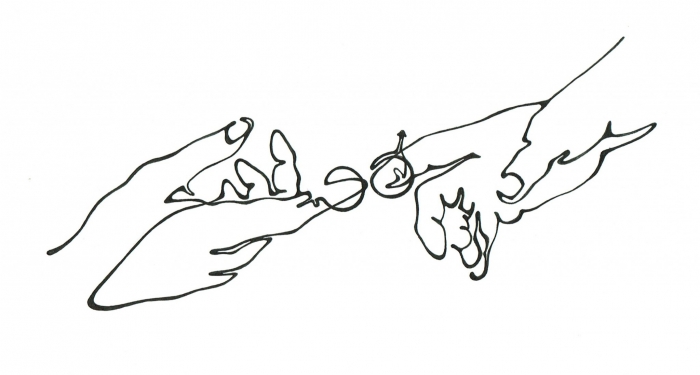What if you were told that you had to pay more for your morning coffee, just because of your gender? Toronto coffee shop Tokyo Smoke got a rise out of its customers for doing just this. One woman was told she’d have to pay a whopping $5.00 for her small decaf latté—$1.50 above the male price. “So it’s discrimination basically,” she retorted. To this, the barista plainly responded, “Yep.” “Is this a joke?!” a coffee-seeking woman scoffed. Many customers left empty-handed, promising to boycott the quaint Trinity Bellwoods café forever. The overwhelmingly negative reaction is predictable. Tokyo Smoke’s blatant act of discrimination is disgusting. Comical, even!
Not surprisingly, the little trick that Tokyo Smoke played on its customers had a political agenda. Executed by female empowerment organization GirlTalk HQ, the whole point of this coffee-shop hoax was to upset people—and hopefully raise awareness for an important social injustice.
At first glance, it may seem like this stunt was an oversimplification of a nuanced women’s rights issue. However, maybe the issue at hand really is that simple. No, the products are not different; yes, women just have to pay more. People have no problem seeing how this is sexist. This clever awareness tactic illuminates the inequity in the Pink Tax.
The Pink Tax is a premium that has women spending an average of 43 per cent more on personal hygiene products than men. Products marketed towards women are consistently more expensive than identical products advertised for men. The Pink Tax is sexist because it plays into the social pressures that delimit and constrain women—even beyond what they may be conscious of. Society emphasizes femininity as a key characteristic of a desirable woman. Producers can sell female-marketed products at a higher cost because women are socialized to conform to these gender ideals. The Pink Tax exploits female consumers by taking advantage of gender stereotypes.
A Toronto-based study by Parsehub examined the price tags of over 3,000 personal care products and determined that women pay more than men for products like shampoo, razors, soap, and deodorant. These findings echo those of a similar study by the New York City Department of Consumer Affairs on gender pricing. This research went beyond personal hygiene products, and uncovered that numerous goods—for example, baby toys, clothing, and jeans—have a much steeper price tag when tinted pink or advertised as ‘for the ladies,’ even when the male-gendered counterpart was practically identical.
Not only do women pay more, we still earn less than men. The average woman working full time in Canada makes 73.5 cents for every dollar a man earns, despite female levels of educational attainment surpassing those of men. This wage gap exacerbates the injustice of women being forced to fork over a greater portion of their income for the Pink Tax. It’s safe to draw the conclusion that it costs more to be a woman at any stage of life.
In 2012, Ellen DeGeneres spoke out about a new product by Bic called “Bic for Her”—pens designed for women and sold for twice the price. Ellen illustrates that the Pink Tax is a reality, though an absurd one. “The worst part [about these pens] is that they don’t come with any instructions,” she jokes. “So how do they expect us to learn how to write with them, you know?” Humour can be a clever way to point out social injustices, but it’s crucial to look closely at what we’re laughing at: In this case, it’s discrimination, sexism, and the gender gap. It’s 2016, and blatant acts of systemic sexism are, as GirlTalk HQ and Ellen point out, inexcusable and should not be tolerated.
Gendered pricing exploits women and perpetuates sexist gender norms. Individuals can fight the Pink Tax by signing GirlTalk HQ’s petition to urge the Canadian government to implement a law prohibiting gendered pricing. In the meantime, women can reduce their personal Pink Tax by opting for unisex or men’s products when the price tags are significantly lower. That being said, if I prefer my razor tinted in pink, that doesn’t mean I should be forced to pay more.









